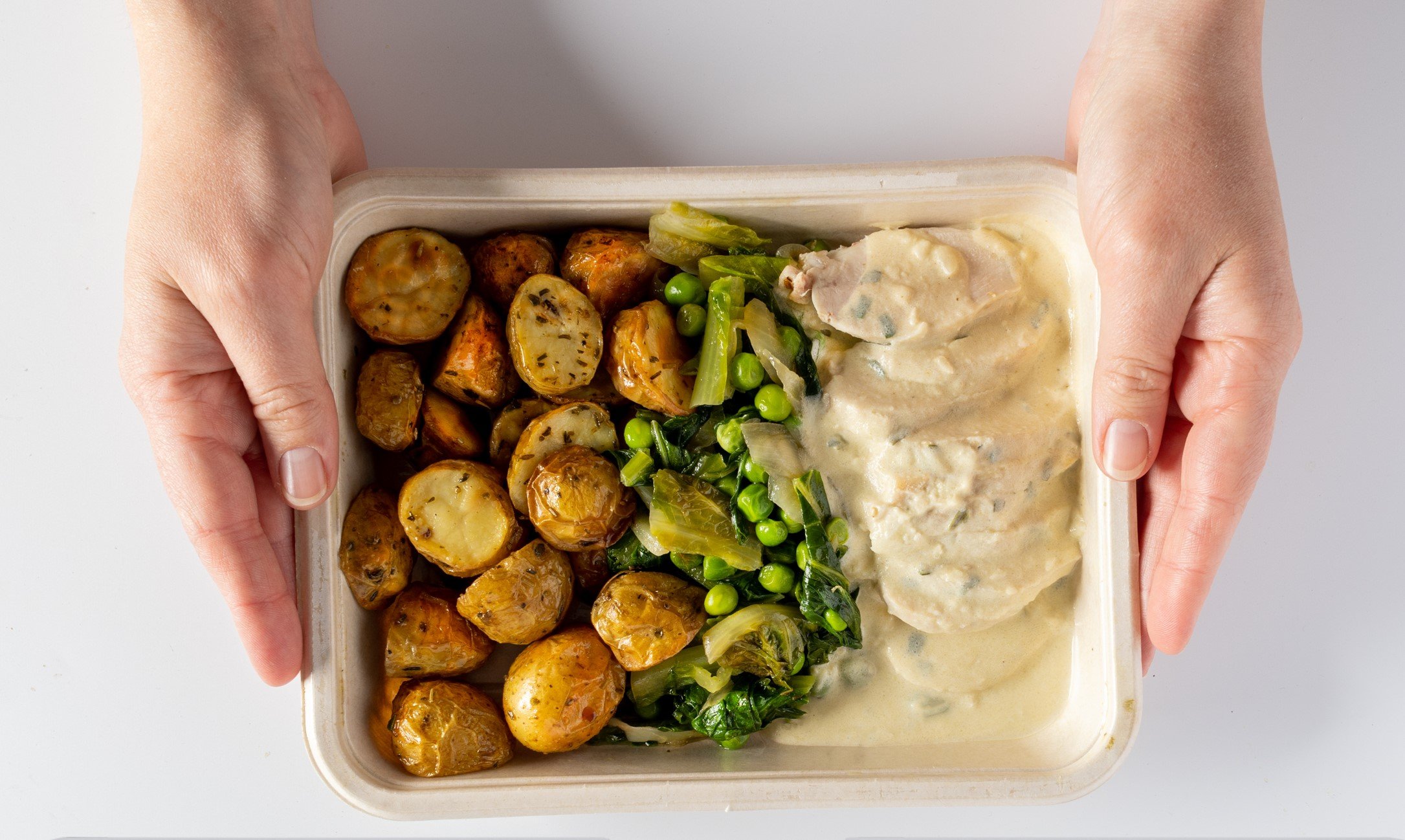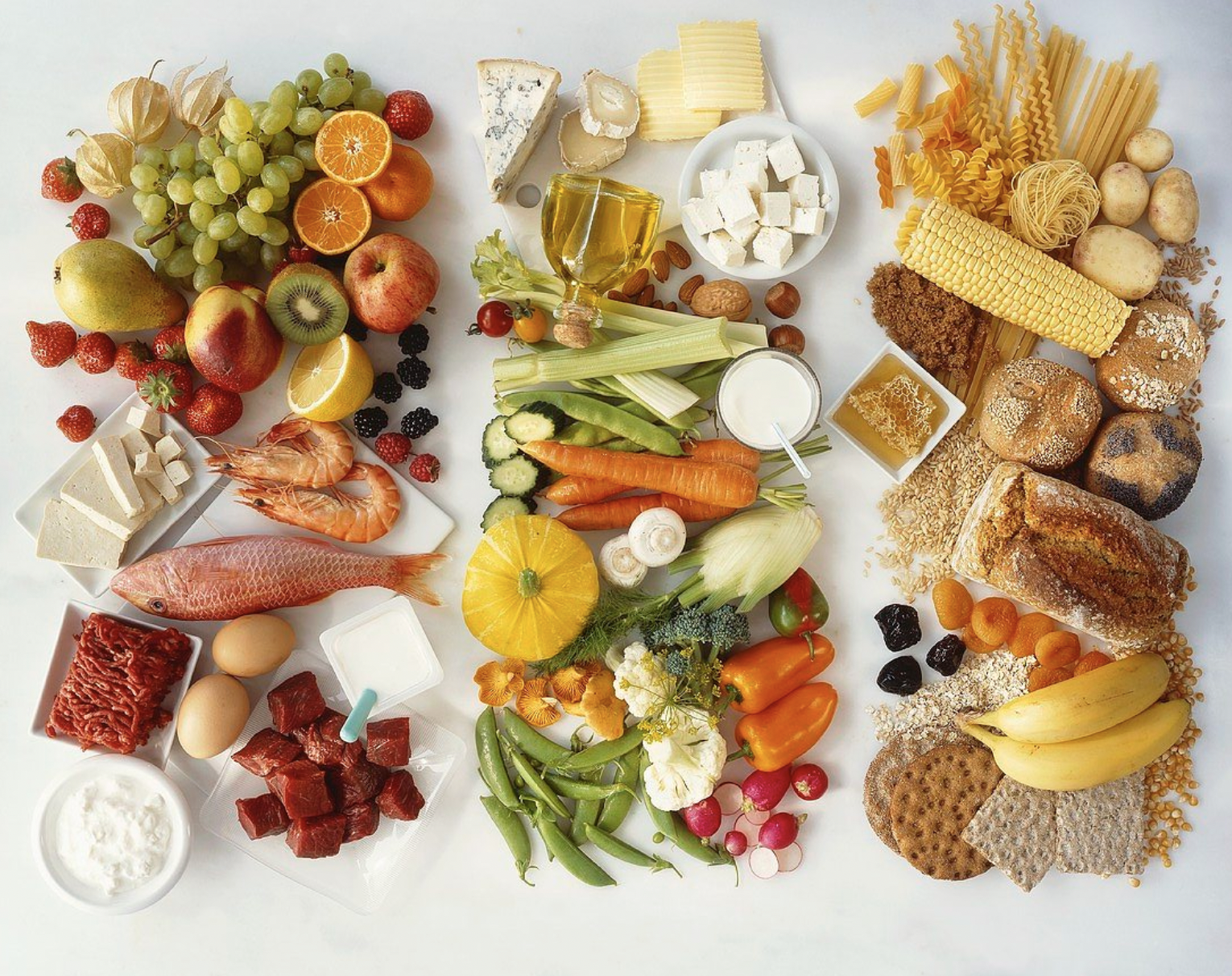The Quest for Healthy Takeaway: Finding Balance in Convenience

Do you find yourself reaching for the takeaway menu more often than you'd like? Whether it's a weekly ritual or an occasional indulgence, the convenience is hard to resist. But if you're aiming to prioritize your health and manage your weight, it's essential to consider the impact of your takeaway choices.
The Truth about Takeaway
Takeaway food, despite its appealing variety, often falls short on the health front. While some menus may showcase vibrant vegetables and lean proteins, the reality is that many popular takeaway options are filled with processed ingredients, excessive fats, and sauces, causing their calorie count to skyrocket. Even the seemingly "healthy takeaway" choices can pack a hefty punch of fat and calories, thanks to larger portions and deep-fried temptations.
Moreover, nutritional information is rarely available, making it hard to know exactly how many calories, grams of sugar or fat you are consuming. This lack of transparency hinders consumers from making informed decisions about their food choices.
What to consider when trying to find healthy takeaway:
- Are the meals nutritionally balanced?
- What oil are they using?
- How high is the salt content?
- Is it cooked using whole foods?
We'll go into each of these questions in more detail below.
The Balance Predicament
The foundation of a healthy diet is balance – a harmony of proteins, healthy fats, veggies, and carbs. Unfortunately, takeaway meals often miss the mark. They typically prioritize a carb-heavy selection like pizza, wraps, and noodles, coupled with fatty proteins and a token amount of veggies. This imbalance means you're getting more fat, fewer proteins, and minimal fibre, leaving you unsatisfied and prone to overeating, making it challenging to stick to health goals.
The Role of Oil
Oil usage in takeaway food preparation, especially in deep-fried dishes, adds to the calorie and fat content of these meals. Moreover, it is almost impossible to know which oils are being used in your favourite takeaway recipes, and at what temperature they've been heated. However, oils are not all equal in terms of health and environmental impact. Palm oil, for instance, linked to deforestation, is one to steer clear of.
The Danger of Excessive Sodium
Takeaway meals often come with a hefty dose of sodium, contributing to health concerns such as high blood pressure and heart disease when consumed excessively. The high sodium content in these meals can disrupt the body's fluid balance and put a strain on the heart and blood vessels over time. Furthermore, habitual consumption of sodium-rich takeaway foods may increase the risk of developing hypertension, stroke, and other cardiovascular issues.
With sodium lurking in sauces, seasonings, and processed meats, it's essential to be mindful of its intake and opt for healthier alternatives to safeguard long-term health.
Processed Food and its risks
The convenience of takeaway often comes at the expense of nutritional quality, as many of these meals are packed with processed ingredients, additives, and preservatives. These additives not only extend the shelf life of the food but also enhance flavour and texture, albeit at the cost of health. Regular consumption of such processed foods has been linked to various health concerns, including obesity, type 2 diabetes, and certain cancers.
Additionally, the artificial flavours, colours, and preservatives found in takeaway meals may trigger adverse reactions in sensitive individuals, underscoring the importance of prioritizing whole, unprocessed foods for optimal well-being.
A Closer Look at the Data
Recent studies shed light on the repercussions of regular takeaway indulgence. Research among young adults in Australia revealed that frequent takeaway consumption correlated with poorer diet quality and increased abdominal obesity. Men and women who opted for takeaway twice a week or more were less likely to meet dietary recommendations for essential nutrients and faced a higher prevalence of moderate abdominal obesity.
A Healthy Takeaway Alternative: Introducing Powermeals Bundles
But fear not! You can still enjoy a night off from cooking without compromising your health. With our new bundle options, savour a delicious dinner with loved ones guilt-free. Our meals are meticulously crafted by nutritionists and cooked fresh by our chefs to ensure a perfect balance of nutrients – from protein sources to wholesome carbs and generous servings of veggies.
Why Choose Powermeals?
-
Healthy Without Compromise: Say goodbye to excessive fats and calorie-loaded meals. With Powermeals, indulge in flavorful dishes that nourish your body, while also enjoying the peace of mind that comes with easily accessible nutritional values for extra transparency.
-
Convenience Redefined: No more waiting for your food to arrive late on a Friday night. Plan ahead, stock up your fridge with our bundles, and enjoy hassle-free dinners whenever you please.
-
Variety That Excites: From low-carb Indian feasts to classic French favourites, our menu offers something for everyone. Explore our diverse menu and treat yourself to a culinary adventure.
- Affordability That Delights: Our bundles are designed to be more affordable than your average takeaway order, ensuring that you can indulge in delicious meals without stretching your budget thin.
Make the Switch Today!
It's time to rethink your takeaway choices and opt for a healthier alternative. With Powermeals, eating well is simple, delicious, and downright satisfying. Order now and discover a new way to savour delicious meals while nourishing your body and mind.
About us:
Looking to eat healthy and fuel your body with the right nutrients? Look no further than Powermeals. Our nutritious and balanced meal options are designed to support your metabolism and overall health.
By incorporating Powermeals into your routine, you can ensure that you're getting the essential nutrients your body needs to maintain a healthy metabolic rate. With convenient delivery straight to your door, taking care of your health has never been easier. Discover how Powermeals can help you achieve your health and wellness goals today.
FAQ
Q1: Are all takeaways unhealthy?
A: Yes, most takeaways are unhealthy because they often contain higher levels of fats, sugars, and salts compared to home-cooked meals. Fast food and other common takeaway options frequently prioritize taste over nutritional balance, leading to meals that are calorie-dense and nutritionally poor.
Q2: Is takeaway food always fast food?
A: Often, takeaway food is synonymous with fast food, as many takeaways focus on quick, easily prepared meals that do not require lengthy cooking times. While there are exceptions, the majority of takeaway options fall within the fast-food category, emphasizing convenience over culinary quality.
Q3: Can takeaway food be healthy?
A: Takeaways can be high in fat, saturated fat and salt, so try to eat them in moderation. When eating out, look for calorie information on the menu as this can help you decide how healthy the meal is. Healthy takeaway options may include meals served with vegetables instead of fries, whole foods that don't contain additives and recipes that don't include industrial condiments.
Q4: Can takeaways cater to specific dietary needs?
A: It is challenging for takeaways to cater to specific dietary needs due to their standardized menus and bulk preparation methods. Special dietary requests can be difficult to accommodate, making it hard for individuals with strict dietary restrictions to find suitable options in takeaway formats.
Q5: How often is it safe to eat takeaway?
A: The frequency with which it is safe to eat takeaway largely depends on the nutritional content of the specific takeaway meals being consumed and an individual's overall dietary habits and health goals. Aiming to consume takeaway meals no more than once or twice a week can help mitigate potential negative health effects associated with frequent consumption. However, incorporating healthier takeaway options, such as those with more vegetables, lean proteins, and whole grains, may allow for slightly more frequent consumption. Ultimately, moderation and balance are key principles in maintaining a healthy diet.


